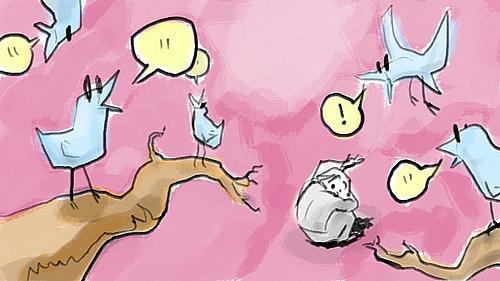Study: Twitter Mostly Gets It Right on Vaccines

Can Twitter help spread reliable information on health? Or is it a dangerously effective purveyor of misinformation, paranoia and balderdash?
A new study published by the American Journal of Infection Control provides some evidence that users of the micro-blogging service generally do a decent job when it comes to relaying information on vaccines.
How decent? Of the cross-section of vaccine-related tweets that contained medical knowledge, more than two-thirds “offered content substantiated by medical research,” according to the study. Sourcing, it turns out, does matter when users are deciding whether to share information, the study says.
“In this sample, it appears that Twitter users share mostly reputable information and sources while actively mobilizing others to seek reliable health information,” the University of Texas at Austin researchers concluded.
While anyone can send out a tweet with unfounded health claims and dubious links, it’s far harder for that bite-sized bit of misdirection to get lift-off in the form of re-tweets and favorites without credible links from mainstream sources, whether that be the American Medical Association or the New York Times:
News and health organizations received mostly positive attention in comparison with political or advocacy groups, indicating users are favorably viewing established sources in their health-information seeking. This is an encouraging finding, suggesting that users apply some level of critical thinking when evaluating medical content based on their source credibility.
For the study, researchers looked at English-language tweets posted from Jan. 8 to Jan. 14, 2012, that included keywords relating to vaccination. From there they gradually whittled down their sample to 2,580 tweets that were “receiving engagement” from other users (researchers were trying to hone in on the messages most likely to influence others and spread information).
“Overall, 33 percent of the 2,580 tweets were positive regarding vaccines, 54 percent were neutral, and 13 percent were negative,” the study found.
Tweets considered positive generally promoted immunization and/or its effectiveness. Neutral tweets told of vaccination experiences. While negative tweets were far outnumbered by positive and neutral ones, they did often make claims about the alleged dangers of vaccinations. (Of course if a Twitter user is following a larger-than-average share of vaccine skeptics, that breakdown would look very different. But the problem of the echo-chamber effect is hardly unique to Twitter.)
What sources were Twitter users linking to most frequently in their vaccination tweets? WebMD accounted for 16 percent of links, national media (such as the New York Times) 13 percent, medical organizations 12 percent, and digital news aggregators 10 percent.
Less mainstream outlets were present as well. The study reports that sites devoted to alternative therapies such as Mercola.com made up just over 5 percent of links.
Not surprisingly, the researchers found Twitter tends to tout the new:
The development of new vaccines and interpretation of updated research made up the most frequent Twitter topics, fitting the medium’s nature as a timely communication channel for breaking news and a place to debate and make sense of complicated health issues.
But it would seem not all social media are equally credible, at least on the vaccination front. YouTube appears to be a far more treacherous landscape for those in search of evidence-based information on the topic. The study points to previous research focusing on YouTube’s vaccine-related videos that found about half of the content was “ambivalent toward vaccination” and often didn’t hold up when fact-checked. They describe the overall view on vaccines presented by social media as “complicated and not entirely accurate.”
“Complicated and not entirely accurate” will no doubt resonate with anyone who has researched health online, but this study does suggest that Twitter, despite its free-for-all appearance, is set up in way that facilitates the spread of reliable links about vaccines and health topics more generally.
Twitter isn’t a crowd-sourced version of JAMA, nor is it supposed to be. Wacky information will abide. But if this study is to be believed, the Twitter echo chamber just might be more helpful (and less harmful) than we assumed.
Image by Pete Simon via Flickr

